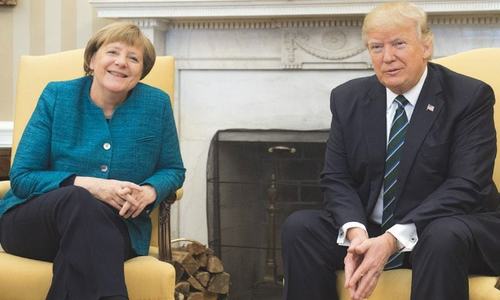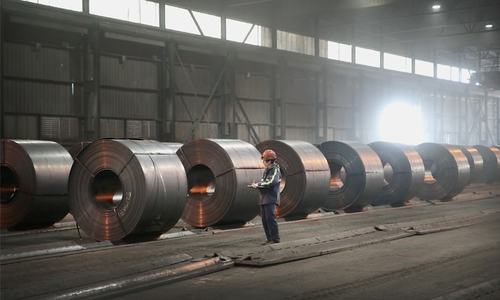THIS week, so many questions.
Could Germany, that well-mannered European economic giant, really be turning tough in its hitherto quasi-subservient relationship with the United States?
And is it now totally okay for diplomats to drop their soft, bland and courteous exterior and start meddling in their host nations’ internal affairs?
Is US President Donald Trump not only poisoning the already-troubled transatlantic relationship but also changing the job description for international diplomats?
First, Trump and Germany.
Ties between Washington and Berlin have always been strong and were reinforced further as Barack Obama and Chancellor Angela Merkel forged a “special relationship”.
But times have changed — radically.
As the EU’s top economic powers gather for the G7 talks in Canada on Saturday, German politicians are incandescent at remarks by US President Trump’s new envoy to Berlin signalling his desire to “empower” Europe’s growing band of anti-establishment conservative politicians.
Ambassador Richard Grenell, a Trump loyalist and former Fox News contributor, insisted in an interview to Breitbart that “I absolutely want to empower other conservatives throughout Europe, other leaders... I think there is a groundswell of conservative policies that are taking hold because of the failed policies of the left”.
He added that Trump’s election had specifically “empowered individuals and people” to shake up Europe’s status quo. Grenell has since peddled back. But German politicians are still seething at the ambassador’s meddling in European affairs.
Some are so furious — including Social Democrat politicians who are in the governing coalition — that they have called for Grenell’s expulsion for interfering in local politics.
Others are calling for calm but are clearly still perplexed as to how the US could turn so quickly from friend to quasi-foe.
Well, not foe exactly — of course not. Germany and the US are still close economic partners, and linked to each other through an array of accords and of course through Nato.
But as EU Council President Donald Tusk said recently of the US: “With friends like these, who needs enemies?”
Second, beneath the anger there is also sadness and grief. Trump’s withdrawal from the Paris climate agreement, the Iranian nuclear deal and now his decision to push ahead with punitive tariffs on European steel have shaken European policymakers to the core.
In fact, the EU has decided on fully fledged retaliation against Trump’s tariffs on steel and aluminium and will be targeting the maximum amount of US exports allowed under world trade rules — worth some €2.8 billion a year.
Still, no one in Brussels is actually enjoyingthis gradual souring of the transatlantic relationship. For the last few weeks while talking publicly about building a strong, unified and assertive Europe, EU officials have been pleading with Washington to exempt European exports from the sanctions.
And even as the transatlantic relationship goes from bad to worse, the EU’s Tusk has voiced hopes that these disagreements could be “merely seasonal turbulences” rather than the break-up of the G7.
If only. Indeed if the fracas over Grenell is anything to go by, European politicians are finally beginning to see the writing on the wall.
“What this man is doing is unprecedented in international diplomacy,” Social Democrat leader Martin Schulz said of the US ambassador, adding that if Germany’s envoy to the US had backed the Democrats, he would be thrown out immediately.
Third, Germans can seethe all they like but the fact is that US envoy to Berlin is exactly like his president. His decision to challenge accepted convention and defy diplomatic protocol is what his boss is doing as well. With a vengeance.
And it isn’t going to change. Europeans may wish for a going back to the old way of doing global business but it isn’t going to happen.
Finally, whether they like it or not, European leaders will have to find ways to get along with a rising China and an assertive Russia, without relying on America.
Relations with Iran will have to be salvaged by the Europeans working with Beijing and Moscow. World trade and climate change as well as other challenges will require building new partnerships and consolidating existing ones.
This means Europeans will have to start walking the talk on defending the rules-based multilateral order and standing up to an American president who is riding roughshod over global agreements.
That seems like a more effective way of dealing with America than crying over a love affair gone sour — and endlessly wondering “why America doesn’t love Europe any more”.
—The writer is Dawn’s correspondent in Brussels
Published in Dawn, June 9th, 2018














































